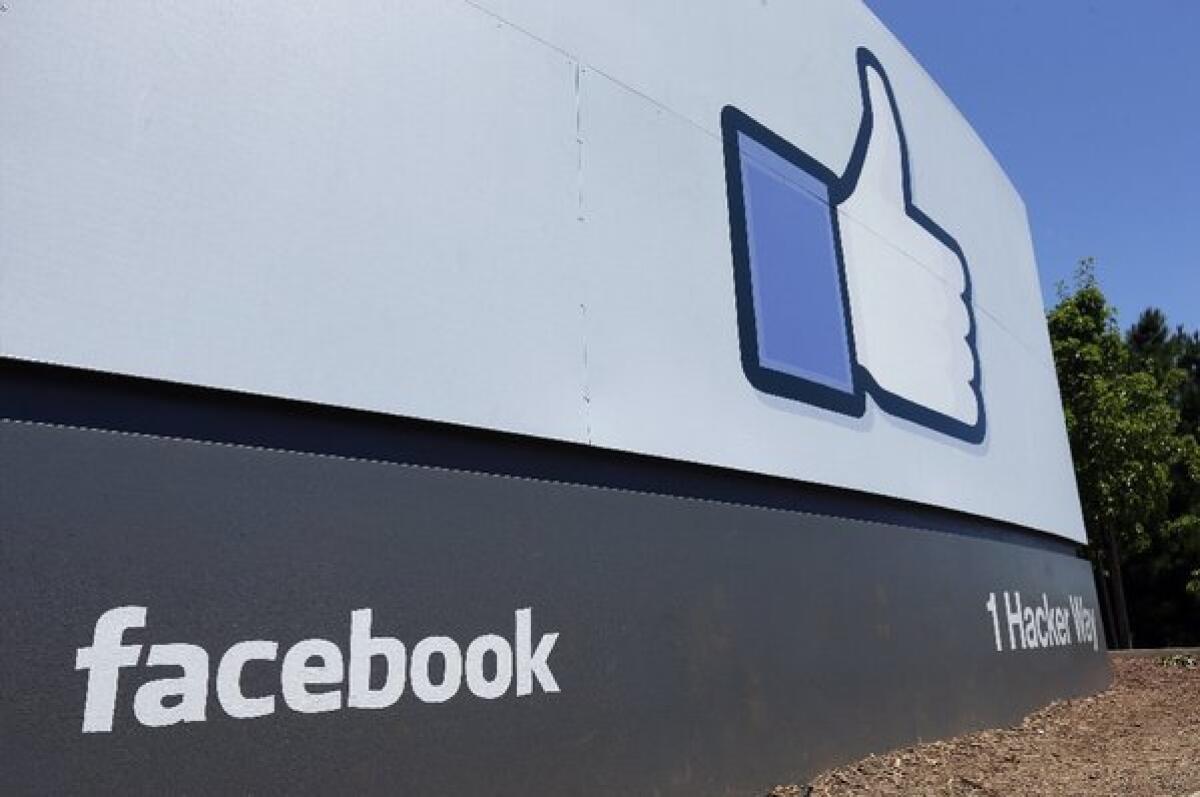Sex, food, Facebook: Are they all linked in the brain?

- Share via
What makes Facebook a rewarding experience instead of a bummer? It may be that monitoring “likes” and feedback stimulates the same part of your brain that fires up in response to imagery of food, sex and rewards in general, a new study suggests.
Researchers found that brain scans taken while someone received positive feedback could be used to predict that user’s intensity of Facebook use. The results suggest that people may be driven to use Facebook by a desire to monitor their reputation, said neurologist Dar Meshi of the Free University of Berlin, lead author of the study published Thursday in the journal Frontiers in Human Neuroscience.
If so, that connection could help explain why behavioral studies link Facebook use to self-affirmation. And it also could point toward the mechanism that turns Facebook into a bummer — users who make comparisons between their own reputation and that of others tend to show a drop in immediate mood and long-term outlook, according to a recent study. Those types of behaviors are linked to the nucleus accumbens, a region that processes rewards that motivate behavior.
“The brain activity corresponds with the Facebook use only when you compare their individual gains due to their own feedback, minus the feedback they observed for other people,” Meshi said.
That relative difference, Meshi noted, could be the key to unlock how new social media are affecting a very old medium: the part of the brain that mediates motivation and reward. “We wanted to use a brain activity we see in the lab and try to predict a real-world behavior that’s aimed at reputation management,” Meshi said. “We didn’t have to choose Facebook; we could have chosen donations to charity or polite behavior to strangers, some type of human behavior where we take our reputation into consideration.”
A study last year demonstrated that when people were shown pictures of food or sex, the intensity of activity in the ventral striatum, a key reward center, predicted subsequent consumption and desire. People with high activity in that area ate more chips after seeing pictures of chips, for instance.
Other studies have shown that the likelihood of having a reward-dependent personality was linked to the strength of connections between the ventral striatum and an area of the cortex that involves personality expression, decision making and moderating social behavior.
Researchers narrowed in on one key part of the ventral striatum’s reward system: the nucleus accumbens.
“When we win money, when we eat good food, when we have sex, when we exercise and lots of social things activate the nucleus accumbens,” Meshi said.
Like an increasing number of neurologists and psychologists, Meshi was fascinated with Facebook, which offers multiple features for those motivated to manage their reputation. “You post something and then you wait for a positive social feedback in the form of likes and comment,” said Meshi. “And if you get likes, it demonstrates that people think highly of you, which is equivalent to reputation.”
Participants viewed pictures of themselves or others, along with various descriptive words. They also played a simple card game for monetary rewards, to help researchers check whether simpler reward response correlated with Facebook use. It did not.
The activity recorded for faces and feedback did correlate with the users’ reported use of Facebook. Notably, just seeing more positive than negative descriptions associated with the subject’s own photo was not enough to predict reported intensity of Facebook use, Meshi noted. The predictive value of the brain scans was highest for personal reputation gain relative to the gains of others, the data suggested.
The study did not include brain scans while subjects used Facebook and did not address behavioral issues directly, Meshi noted. But the data may help direct further investigation into mood changes and issues such as compulsive use of social media.
“All these things that activate the nucleus accumbens you can also become addicted to,” Meshi noted.






